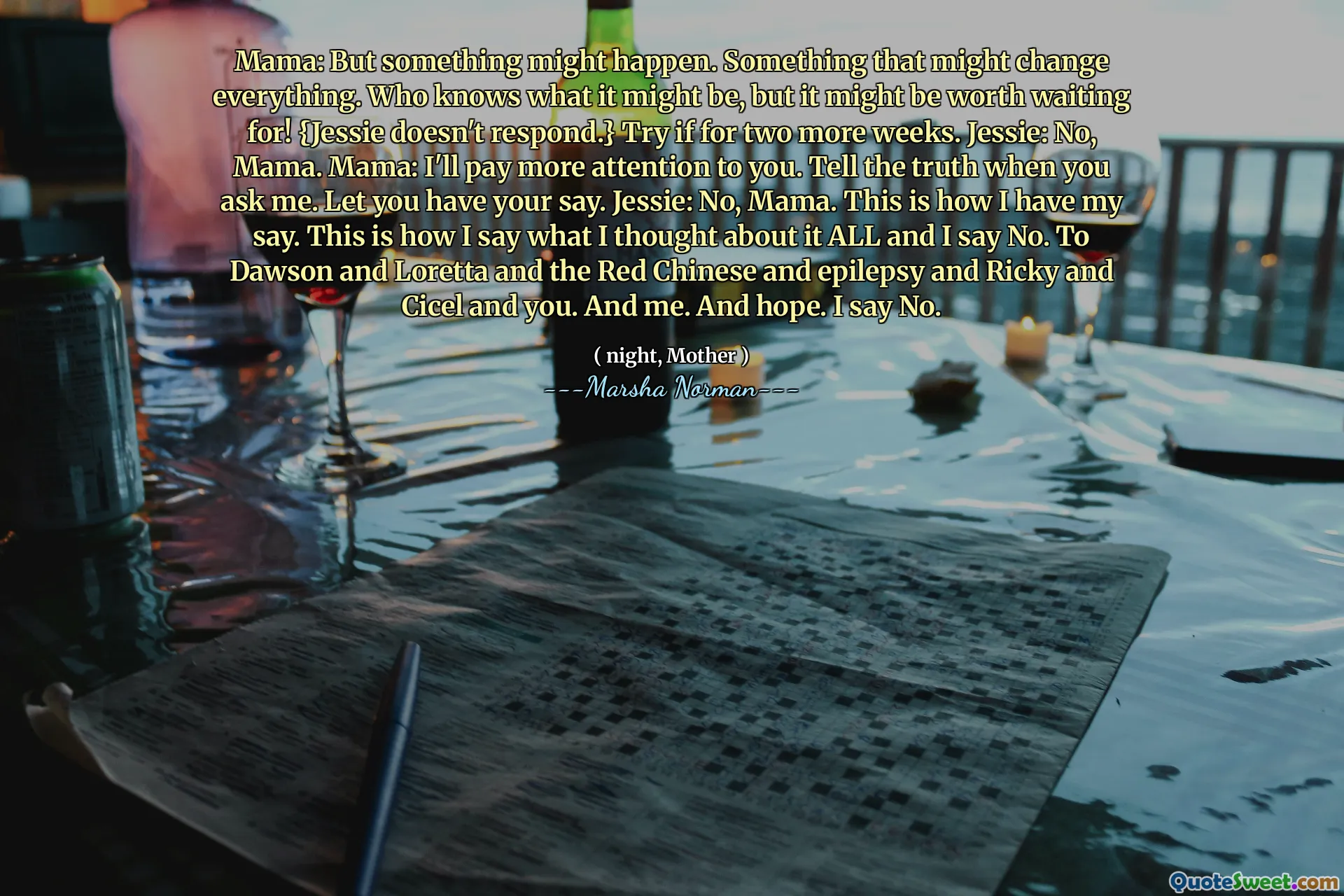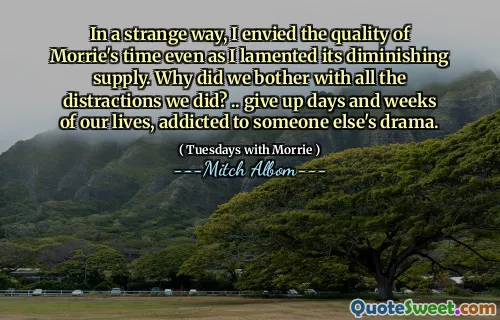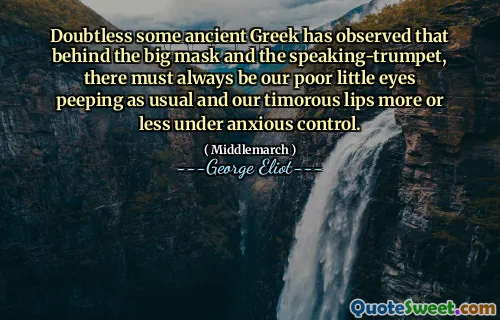
Mama: But something might happen. Something that might change everything. Who knows what it might be, but it might be worth waiting for! {Jessie doesn't respond.} Try if for two more weeks. Jessie: No, Mama. Mama: I'll pay more attention to you. Tell the truth when you ask me. Let you have your say. Jessie: No, Mama. This is how I have my say. This is how I say what I thought about it ALL and I say No. To Dawson and Loretta and the Red Chinese and epilepsy and Ricky and Cicel and you. And me. And hope. I say No.
This excerpt from '(night, Mother)' by Marsha Norman captures a powerful moment of defiance and emotional complexity. The scene reveals Jessie’s firm assertion of independence and the importance of her voice in a situation where she feels misunderstood or unheard. Her repetition of saying "No" underscores a stance of refusal—not merely opposed to individual entities or ideas, but to the circumstances and sentiments that might force her into decisions she is not comfortable with. The interactions between Jessie and her mother reflect a deeper tension: a tug-of-war between a mother’s concern and a daughter's autonomy. Jessie's unwavering declaration embodies her need to assert control in her life, to refuse dictates, and to honor her perspectives—even when they are uncomfortable or painful. It also highlights themes of despair, empowerment, and the desire to matter. From a emotional standpoint, the quote reveals the importance of giving voice to our feelings, especially when facing difficult decisions or suppression. Jessie’s boldness epitomizes the struggle for self-governance in the face of expectation, societal norms, and familial pressure. The repetitive structure emphasizes her conviction and the gravity of her choice, making it a poignant reflection on the complexities of mental health, free will, and personal integrity. Overall, the scene deeply resonates, reminding us that often, saying ‘No’ can be an essential act of self-preservation and authenticity amid chaos and confusion.


